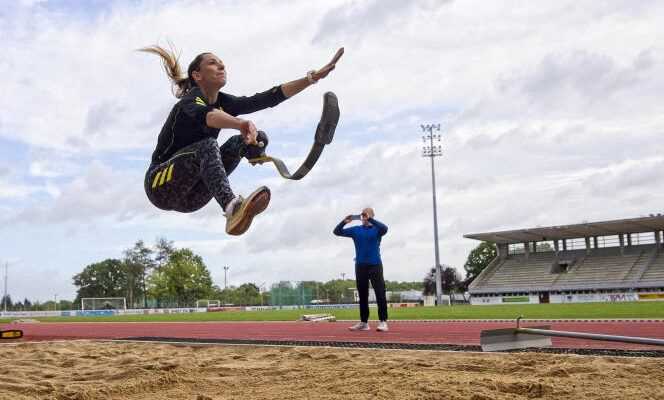Just over two weeks after the Tokyo 2020 closing ceremony begins on Tuesday, August 24 in the Japanese capital, the 17e edition of the Paralympic Games. Until September 5, 4,400 athletes from more than 130 delegations will compete, depending on their disability, on the grounds of the 22 sports included in the Paralympic program – 23 if we consider the official distinction between track cycling and cycling on the road.
The French team is in Japan with 138 athletes (accompanied by about fifteen guides and assistants) physically, sensory or intellectually disabled, engaged in 19 disciplines. Pierre Fairbank and Nantenin Keita in athletics, David Smétanine in swimming, or even Sandrine Martinet (judo) and Stéphane Houdet (tennis), all flag bearers of the French delegation, represent, among other athletes, real chances for medals.
The goal for the Blues? Coming back from Tokyo with 35 medals, compared to just 28 in Rio in 2016 – the worst total in history -, for “To put France back in an ascending phase with a view to the Paris Games”, in 2024, in the words of Jean Minier, the sports director of the French Paralympic and Sports Committee (CPSF).
Chinese and British domination
At this level, the booty would be very meager compared to those of China five years ago in Rio (239 medals, including 107 in gold) or the United Kingdom (147, including 64 in gold). For Marie-Amélie Le Fur, president of the CPSF – also Paralympic champion in the 100m (London 2012), 400m and long jump (Rio 2016) – winning 35 medals in Tokyo is “An ambitious goal”, but that she considers “Realistic with regard to the density of competition”.
Jean Minier, for his part, prefers to talk about an objective “Floor”. In particular because of the particular context of the past eighteen months, the Covid-19 having made any forecast random. “The pandemic has greatly limited the number of international competitions, it is more complicated to manage to measure the level of adversity”, notes the head of the tricolor delegation in Tokyo, who is however pleased to have “Podium ambitions in all sports” where French Paralympic athletes are entered.
If China, the United Kingdom, Russia, Ukraine and the United States should, unsurprisingly, once again take the first places in the medal table, this goal of 35 medals remains however far from what the Bleus “reaped” in previous Paralympic editions. A glance in the archives of a not so distant past recalls it: 86 medals, including 30 in gold at the Sydney Games, in 2000, for example.
You have 53.26% of this article to read. The rest is for subscribers only.
